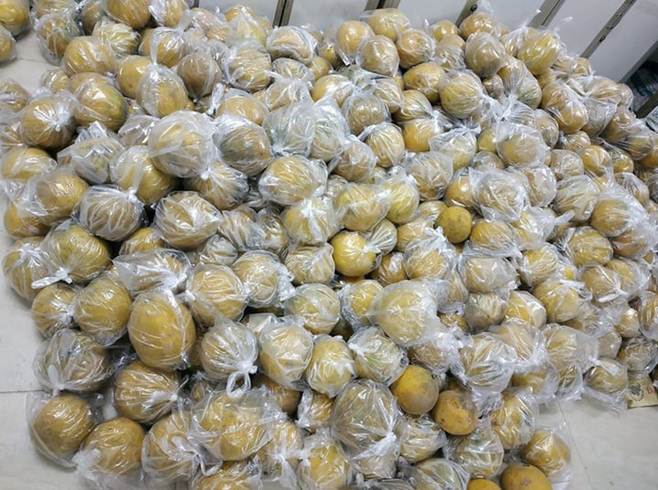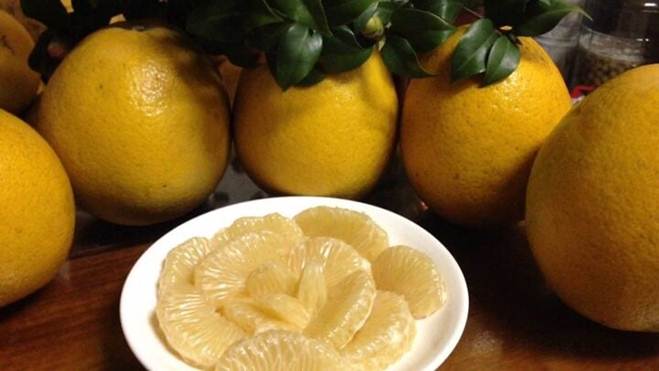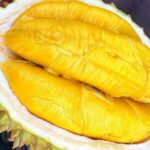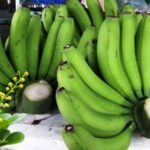The Pomelo, a Citrus Fruit with a Twist: Unveiling the Secrets of the Vietnamese ‘Buoi Dien’
The Buoi Dien, a unique pomelo variety hailing from Phu Dien, Hanoi, boasts a deliciously sweet taste with no hint of sourness. What sets this fruit apart is its exceptionally long shelf life, staying fresh for up to half a year. Thus, it has become a popular gift choice during the Tet holiday season.
Preserving the Buoi Dien
To extend the longevity of Buoi Dien, selecting fresh, high-quality fruit is paramount. Opt for firm, glossy pomelos free from bruises, cracks, or cuts, as damaged fruit quickly rots and affects its neighbors.
Choose uniformly sized fruit, neither too big nor too small. Wait 5-10 days for the fruit to settle and ripen, then trim the stem, leaving a 0.5 cm stub. Apply quicklime to the cut to prevent mold and bacterial invasion, preserving the pomelo’s flavor.
Next, place each pomelo in a nylon bag, sealing it tightly. Keep the bags dry, avoiding moisture and humidity. Nylon bags prevent air contact, slowing ripening and prolonging freshness. Eco-friendly, biodegradable bags are recommended for environmental considerations.
Store the bagged pomelos in a cool, clean space, layering them on newspaper or cardboard. Ensure a single layer of fruit with adequate spacing. This method keeps Buoi Dien fresh for up to six months.
Alternatively, gently wash the pomelos in cold water, then soak them in a diluted salt solution for 5 minutes. Dry them with a clean cloth. Apply dissolved quicklime to the stems and choose a dry, sun-protected area. Spread a layer of clean sand or quicklime on the floor and arrange the pomelos. Regularly inspect the fruit, addressing any potential issues to prevent spoilage from affecting the rest.

With the right storage methods, Buoi Dien can last for up to half a year. (Image: Lorca)
Selecting the Perfect Buoi Dien
When choosing Buoi Dien, consider these factors:
– Aroma: A ripe Buoi Dien emits a natural, lingering fragrance without being overpowering. Just a few pomelos can fill a room with their delightful scent. The true test lies in the taste, where a subtle hint of sweetness graces your palate.
The ideal Buoi Dien boasts a rich sweetness and a distinctive aroma. Its golden segments are smooth, with thin pith, easily peelable, and firm seeds. The fruit feels dry to the touch but bursts with juice when bitten into.
– Shape and Color: Opt for round pomelos with smooth, unblemished skin. Ripe fruit sports a deep yellow or reddish-yellow hue and feels substantial in hand.
– Size: Choose medium-sized pomelos that feel heavy for their size. Avoid oversized fruit, which tends to be dry and less sweet.
– Skin: Select pomelos with thin, taut skin. A sun-kissed rind, slightly browned by the sun, indicates a sweeter, more fragrant treat than its brighter yellow counterparts.
Allow freshly picked Buoi Dien at least two weeks to ripen and concentrate its sugars. This waiting period ensures the pomelo reaches its full flavor potential.
Consumption Considerations

Avoid consuming pomelos after indulging in alcohol or smoking. (Image: Fefe Garden)
– Avoid mixing with stimulants: Pomelos contain Pyranocoumarin, which intensifies the effects of cytochromes P450 (gut enzymes). This interaction increases the toxicity of nicotine and ethanol, posing health risks. Refrain from consuming pomelos after smoking or drinking alcohol.
– Digestive issues: Pomelos have a cooling effect, which can exacerbate diarrhea. Individuals with weak digestion should exercise moderation. Typically, pomelos are used to reduce fever, and overconsumption can lead to stomach aches.
– Medication interactions: Elderly individuals taking medication should avoid pomelos and their juice. For those with high blood lipid levels, combining a glass of pomelo juice with weight-loss pills may result in muscle pain and kidney issues. Some antihistamines, when taken with pomelos, can cause headaches and heart palpitations.
According to VTC News
The Ultimate Guide to Fruit Offerings for the Mid-Autumn Festival: Attracting Abundance and Prosperity
The Mid-Autumn Festival, falling on the 15th day of the 8th month in the lunar calendar, is a time of abundance with a variety of autumn fruits perfect for offerings. This special occasion is filled with meaningful traditions and symbolic gestures, making it a truly enchanting and unique celebration.




































